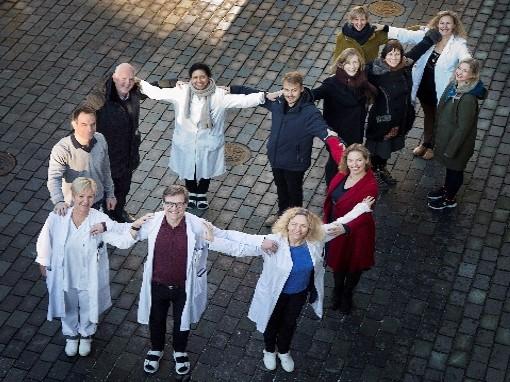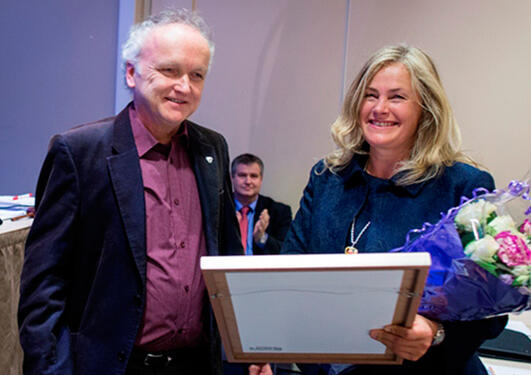Lifestyles and behaviours impact health across several generations
Professor Cecilie Svanes at the Centre for International Health is a specialist in pulmonary and internal medicine. She shared the most recent results from several large studies, which seem to indicate that the pre-adolescent health and behaviour of fathers is a critical window for optimising the health of future generations.

Hovedinnhold
Boys are critical in mother-child health
Svanes was speaking as a guest lecturer in a recent CISMAC Webinar. Although her results are based on a large northern European and Australian cohort, the huge potential impact of these results for health in the next generations, make this work extremely relevant for CISMAC and all mother-child health initiatives around the world.
RHINESSA – ECRHS – RHINE
Svanes conceived and led the large multi-national, multi-centre, multi-generational RHINESSA study (Respiratory Health In Northern Europe, Spain and Australia). It is an ongoing study investigating lung health, allergies and associated diseases across generations, and has now includes >12000 persons from four generations and extending from 1898 to today. She is also a member of the Steering Committee of the European Community Respiratory Health Survey (ECRHS) – a huge multi-centre, longitudinal study that has been active over 20 years, where she investigates in particular, the early-life origins of chronic lung disease. She also pursues this early-life origin interest in a third large Nordic project, Respiratory Health in Northern Europe (RHINE).
But what do these largely western, northern European studies have to say that is relevant for mother-child health questions in LMIC?

Boys’ health critical for their future offspring
The data generated by the huge RHINESSA, ECRHS and RHINE surveys are clearly showing that not only mothers’ health, and in utero exposures, but also that fathers’ health is critical for offspring health. In addition, it seems that there is a critical susceptibility window, or window of vulnerability, in early adolescence (less than 15 years old) in boys that is worthy of attention for efficient, effective public health initiatives that will improve child health in the next generations. During this pre / early adolescent period, germ cells undergo extensive epigenetic reprogramming as they develop into mature reproductive cells.
In particular, researchers have identified two factors that correlate strongly with offspring health in the first AND second generations: whether the boy is overweight and whether the boy uses nicotine products (cigarettes, e-cigarettes, chew tobacco).
Being overweight and tobacco use are growing issues of concern in LMIC. These results provide relevant input into discussions about cost-effective public health interventions, highlighting a critical susceptibility window for public health education initiatives.

Selection of recent papers:
- Transgenerational and intergenerational epigenetic inheritance in allergic diseases (open access)
- Environmental Impact on Health across Generations: Policy Meets Biology. A Review of Animal and Human Models (open access)
- A three-generation study on the association of tobacco smoking with asthma
- Commentary: Tobacco smoking and asthma: multigenerational effects, epigenetics and multilevel causal mediation analysis



